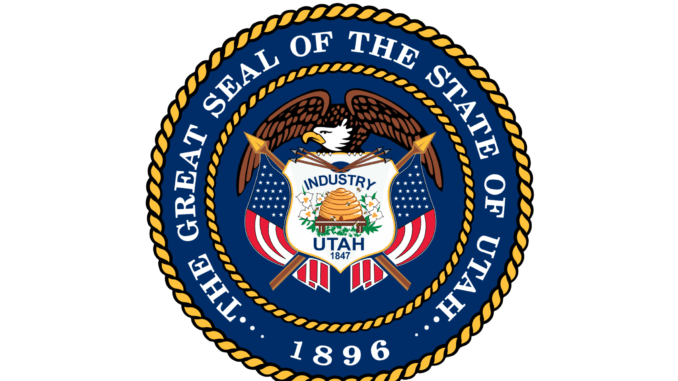
Weekend Special Report on America’s First Experiment in Non-Lawyer Ownership of Legal Businesses
One of the leaders of the campaign to allow non-lawyer ownership of legal businesses has told Artificial Lawyer that Big Four firms would in principle be welcome to apply to join the two-year pilot project in the US state of Utah (see details below). If accepted that would allow them to operate a regulated legal services capability – something that has never been allowed before in America for the accounting giants.
This site asked John Lund, past-President of the Utah Bar and who co-led the consumer needs-focused campaign to allow non-lawyer ownership of legal businesses along with Justice Deno Himonas: ‘Would you be open to the Big Four accounting firms setting up legal services operations in Utah?’
Lund responded: ‘There is nothing stopping those firms from submitting an application to participate in the Utah sandbox for us to consider. Likewise, there is nothing stopping a Utah law firm from submitting an application to add accounting services to its operation. As of now, we have not heard from any such applicant.’
While in some markets, such as the UK, that response would seem unremarkable, in the US it is a major shift – albeit in relation to a two-year pilot project that will operate as a highly controlled sandbox experiment, and also only in the State of Utah – not the rest of the US.
The sandbox will be overseen by a new body that the campaign’s efforts have also helped to create, called the Office of Legal Services Innovation.
The campaign to change the rules in Utah – and that hint at wider possible changes in the US, where Arizona and California among others are also exploring new regulatory environments – came to fruition this week when the local Supreme Court ruled that the experimental project was permissible (see below).

Artificial Lawyer also asked: What was the key deciding factor that tipped the balance in favour of doing this?
Lund replied: ‘The need to explore new ways to close the access to justice gap has been the driver all along. The current system, despite many hours of pro bono from many well intentioned Utah lawyers, is falling way short of the estimated demand.
As to what tipped the balance, the Court was able to provide a thorough opportunity for input and comment, both from the Bar and from the public. That process yielded good input from which improvements and adjustments were made.
‘We are moving forward in collaboration with the Bar instead of with opposition from the Bar. Perhaps more than any factor, that sets the stage for a successful pilot.’
And it’s very important to consider this factor – the entire deregulation project is based on the premise that it is to help consumers, many of whom are finding it hard to access legal services. Implicit in the experiment’s goals are that somehow deregulation will make legal services more available to the majority of people that cannot normally hire a lawyer.
So, given the focus of the sandbox, it’s unclear whether the Big Four, or any other non-lawyer owned organisation that has traditionally had a big business client base would fit into this – but we will see. (Artificial Lawyer has asked Deloitte – which has announced a big push in managed legal services in the US – what it thought of the Utah possibility, but has not heard back yet.)
Finally to the burning question that is on everyone’s minds. This site then asked: Naturally these are early days, but do you believe other States, especially New York, will feel compelled to follow this example? Or will they – as they have done before – reject the idea of change?
Lund replied: ‘Compelled is a strong word, but there are already other States, notably Arizona and California, who are considering similar options. And several other jurisdictions have started their own task forces. So others throughout the US are both following the developments in Utah and studying the options themselves.
‘There might be a tipping point when enough jurisdictions have acted that it becomes more comfortable for the rest. But as you noted, these are early days. Critically, we hope to gather actual data that will answer the question of whether innovations in legal services are causing harm to consumers. ‘
So, there you go. But, as noted this is only a two-year pilot in one State, and it clearly has a focus on consumer needs, not Big Law and Wall Street.
But, from a US perspective, this is a major step forward no matter how one places caveats around it.
And last point: this site has remained sceptical about US Bars opening up to non-lawyer ownership – and one important caveat that probably should have been added is that this scepticism focuses on the Bars of major economic and legal centres, such as New York, opening up to non-lawyer ownership.
The reason for the scepticism is two-fold. First, there have been several efforts to allow non-lawyer ownership in New York. The most recent in 2017 when the 2nd U.S. Circuit Court of Appeals rejected claims by Jacoby & Meyers that its First Amendment rights to petition and associate were violated by prohibitions on non-lawyers holding equity in law firms.
Jacoby & Meyers has been a pioneering consumer rights firm for many years and has been going to court in various states since 2011 to try and get non-lawyer ownership rules changed. Every single time they have failed – often because the court – which was also acting as the regulator of the profession – rejected the case.
And, much as Utah’s step is important, the State only had around 8,285 active and resident lawyers as of 2018. It also had the 39th lowest lawyer to population ratio in America, and that is in a State with a population of only around 3.2 million people. Moreover, Utah is not a Big Law centre, the real centres of legal power in the US are places such as New York, Washington DC, California and Illinois. So, we have to take that into consideration. America is a big country and this move covers just one part of it.
If the above sandbox was taking place in New York that really would be industry changing news. For now, this is an important experiment – and a watershed moment – but with limited ability to really change the dominant centres of legal power in America.
New York, for example, aside from being in many ways the legal capital of the world’s largest legal market, had in 2018 around 180,000 lawyers – that’s more than some countries in Europe have as a whole. That is the real prize, and that is also a market that has shown itself unwilling to change.
So, although Utah’s work is to be applauded, key market centres such as New York have rejected change, even as recently as 2017 – i.e. just three years ago. Hence this site’s continued sceptical stance on wide-scale change that affects the commercial legal world in the US states where Big Law firms mainly are based, especially changes that would allow organisations such as the Big Four to freely operate.
In any case – more to follow!
—
Key Parts of Utah Supreme Court Standing Order No. 15
…a recent study by the Legal Services Corporation found that 86 percent “of the civil legal problems reported by low-income Americans in [2016–17] received inadequate or no legal help.”
For years, the Utah Supreme Court has made combating the access-to-justice crisis confronting Utahns of all socioeconomic levels a top priority.
In its boldest step toward bridging the access-to-justice gap, the Supreme Court has undertaken an effort to reevaluate and amend several of the regulations it has historically relied upon in governing the practice of law. This Standing Order and accompanying rule changes implement that effort. The Supreme Court believes that the regulatory reform set out in this Standing Order will shrink the access-to-justice gap by fostering innovation and harnessing market forces, all while protecting consumers of legal services from harm.
Regulatory Principles
The Innovation Office will be guided by the following regulatory principles:
- Regulation should be based on the evaluation of risk to the consumer.
- Risk to the consumer should be evaluated relative to the current legal services options available.
- Regulation should establish probabilistic thresholds for acceptable levels of harm.
- Regulation should be empirically driven.
- Regulation should be guided by a market-based approach.
3.3.2 Within the Innovation Office’s Regulatory Scope
(Editor’s note: i.e. this part explains what will be allowed.)
Individuals and entities that carry out the following activities are within the scope of the Innovation Office’s regulatory authority and are subject to this Standing Order’s requirements:
(a) Partnerships, corporations, and companies entirely owned and controlled by lawyers; individual lawyers with an active Utah Bar license; and legal services nonprofits partnering with a nonlawyer-owned entity to offer legal services as contemplated by Rule 5.4B;
(b) Nonlawyer owned entities, or legal entities in which nonlawyers are partial owners (for profit or nonprofit):
- (i) offering legal practice options whether directly or by partnership, joint venture, subsidiary, franchise, or other corporate structure or business arrangement, not authorized under the Rules of Professional Conduct in effect prior to [Month] [Date], 2020, or under Utah Supreme Court Rule of Professional Practice 14-802; or
- (ii) practicing law through technology platforms, or lawyer or nonlawyer staff, or through an acquired law firm.
1 Trackback / Pingback
Comments are closed.